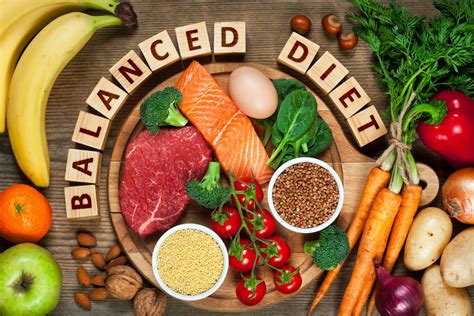Optimize daily energy: what nutrition strategies prevent men’s mid-day slump?

The mid-day slump is a familiar foe for many men, characterized by a sudden drop in energy, focus, and productivity that often strikes in the afternoon. It’s more than just feeling a bit tired; it can derail your workday, impact your mood, and make evening activities feel like an insurmountable challenge. While sleep and stress play significant roles, the food choices you make throughout the day are powerful determinants of your energy levels. By understanding and implementing smart nutrition strategies, men can proactively prevent this energy dip and maintain peak performance from morning till night.
Understanding the Mid-Day Energy Dip
Before diving into solutions, it’s crucial to understand why this slump occurs. Often, it’s linked to fluctuations in blood sugar. A meal high in refined carbohydrates and sugars can cause a rapid spike in blood glucose, followed by an equally rapid crash as your body produces insulin to bring levels down. This roller coaster effect leaves you feeling sluggish, irritable, and craving more quick-fix energy. Other contributing factors include dehydration, skipped meals, and a lack of essential micronutrients.

Balanced Macronutrients: The Foundation of Stable Energy
The cornerstone of preventing the mid-day slump lies in building meals with a balanced ratio of macronutrients: complex carbohydrates, lean protein, and healthy fats.
- Complex Carbohydrates: Unlike simple sugars, complex carbs (found in whole grains, vegetables, and legumes) are digested slowly, providing a steady release of glucose into the bloodstream. This prevents sharp blood sugar spikes and subsequent crashes.
- Lean Protein: Protein helps slow down the absorption of carbohydrates, further stabilizing blood sugar. It also provides amino acids essential for neurotransmitter production, which impacts mood and alertness. Think chicken, fish, eggs, beans, and lentils.
- Healthy Fats: Fats are the slowest macronutrient to digest, offering sustained energy and satiety. Incorporate avocados, nuts, seeds, and olive oil into your diet.
Strategic Snacking and Meal Timing
Skipping meals or going too long between them can lead to significant drops in blood sugar and energy. Eating smaller, balanced meals and snacks every 3-4 hours can help maintain consistent energy levels.
- Smart Snacking: Opt for snacks that combine protein and fiber. Examples include an apple with almond butter, a handful of nuts, Greek yogurt with berries, or vegetable sticks with hummus.
- Don’t Skip Breakfast: A nutrient-rich breakfast sets the tone for your day, kick-starting your metabolism and providing initial energy.
- Lunch Matters: Make lunch a balanced meal. A salad with grilled chicken, quinoa, and avocado, or a whole-wheat wrap with lean protein and plenty of vegetables, can prevent the afternoon crash.

The Power of Hydration
Even mild dehydration can significantly impact energy levels, cognitive function, and mood. Many men unknowingly experience chronic dehydration, contributing to their mid-day fatigue.
- Drink Water Regularly: Aim for at least 8-10 glasses of water throughout the day. Keep a water bottle handy and sip frequently.
- Limit Sugary Drinks: Sodas, energy drinks, and excessive fruit juices can exacerbate blood sugar imbalances.
- Electrolytes: For active men or those in hot climates, consider electrolyte-rich options or adding a pinch of sea salt to water.
Key Micronutrients and Supplements for Sustained Vigor
While macronutrients provide the bulk of energy, specific vitamins and minerals are crucial for energy production at a cellular level.
- B Vitamins: Essential for converting food into energy. Found in whole grains, meat, eggs, and leafy greens.
- Magnesium: Plays a role in over 300 biochemical reactions, including energy production and muscle function. Rich sources include dark leafy greens, nuts, seeds, and legumes.
- Iron: Crucial for oxygen transport in the blood. Low iron (anemia) can lead to severe fatigue. Red meat, lentils, spinach, and fortified cereals are good sources.
- Vitamin D: Linked to energy levels and mood. Best obtained from sun exposure, fatty fish, and fortified foods.

Practical Tips for Sustainable Energy
Integrating these nutritional strategies into your daily routine is key. Consider meal prepping on weekends to ensure healthy options are always available. Pay attention to how different foods make you feel, and adjust your intake accordingly. While nutrition is paramount, remember that adequate sleep, regular physical activity, and stress management are also vital components of sustained energy.

Conclusion: Fueling Your Day, Every Day
Preventing the mid-day slump is an achievable goal for men willing to make conscious nutritional choices. By prioritizing complex carbohydrates, lean proteins, healthy fats, strategic meal timing, and consistent hydration, you can stabilize blood sugar, optimize cellular energy production, and maintain mental clarity throughout your day. Embrace these strategies, and experience the profound difference sustained energy can make in your productivity, mood, and overall well-being. Fuel your body wisely, and conquer every day with renewed vigor.









